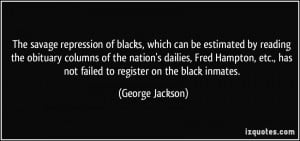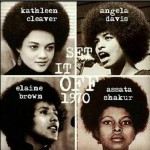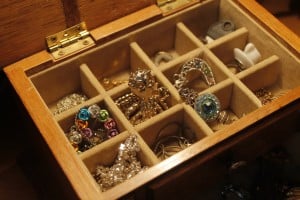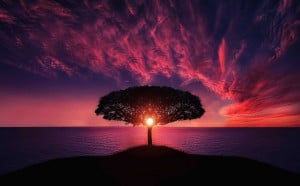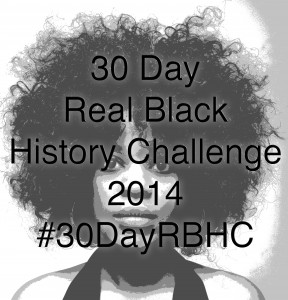 This is the week three digest for the 30 Day Real Black History Challenge. I am a little bit behind, but plan to get the week four, and the encore/finale, up within the next couple of days. This week’s digest includes posts that range from reparations, white privilege, racism, colorism, Tupac Shakur, Mumia Abu-Jamal, George Jackson, urban classroom lawsuits, and personal reflections of culture.
This is the week three digest for the 30 Day Real Black History Challenge. I am a little bit behind, but plan to get the week four, and the encore/finale, up within the next couple of days. This week’s digest includes posts that range from reparations, white privilege, racism, colorism, Tupac Shakur, Mumia Abu-Jamal, George Jackson, urban classroom lawsuits, and personal reflections of culture.
I hope you enjoy the third week of the challenge and continue to explore Black culture, intersectionality and privilege.
Day 15:
* This piece is so packed with information and insightful thoughts that I do not even know where to start with summarizing it. It approaches reparations from a very historical perspective, from racism’s impact on land, ownerships, economics, opportunity and the replacement of things stolen. I appreciated what was brought to the table in this piece. One of the statistical quotes I really appreciated was this one:
“The lives of black Americans are better than they were half a century ago. The humiliation of Whites Only signs are gone. Rates of black poverty have decreased. Black teen-pregnancy rates are at record lows—and the gap between black and white teen-pregnancy rates has shrunk significantly. But such progress rests on a shaky foundation, and fault lines are everywhere. The income gap between black and white households is roughly the same today as it was in 1970. Patrick Sharkey, a sociologist at New York University, studied children born from 1955 through 1970 and found that 4 percent of whites and 62 percent of blacks across America had been raised in poor neighborhoods. A generation later, the same study showed, virtually nothing had changed. And whereas whites born into affluent neighborhoods tended to remain in affluent neighborhoods, blacks tended to fall out of them.”
http://www.theatlantic.com/features/archive/2014/05/the-case-for-reparations/361631/
* Fascinating documentary done about the evolutionary Public Enemy!!! Using music to be modern revolutionaries and express the views that scared many… dismissed as militant. But you have to listen harder to truly hear the pain, power, culture, and resilience of a people in their lyrics and music.
They inspire me to this day!
https://www.youtube.com/watch?v=xMCvWeWnsJw
* This is a reality of “urban” schools in our country. In reality, these are the schools created by the politics of socioeconomic status in America, which most often includes the sole needs of those who are people of color. The schools in these communities do not get the resources that they need to give equal access to kids of color. It is just another way that the system stays in charge of how we progress and the opportunities that urban children will have as they complete school.
Systemic injustice that boils down to racism in modern times. At least some kids in California are trying to do something….
http://www.insidebayarea.com/news/ci_25860895/oakland-richmond-students-file-class-action-lawsuit-against
Day 16:
* What we do not talk about in this country, from the time of the civil rights movement and the revolution, are those people who are STILL incarcerated on charges from an unfair and racist judicial system. There are still Black Panthers incarcerated… while people have come and gone on larger charges. One such person is Mumia. This man continues to be a revolutionary from the cell….. And this documentary looks like a must watch… the trailer is incredible. If you do not know about Mumia, I encourage you to find out more. I am in the process of doing research and reading on him myself.
“The documentary follows the extraordinary journey of the journalist and revolutionary Mumia Abu-Jamal, who has been imprisoned in solitary confinement on death row in Pennsylvania, USA for 30 years. Since he was found guilty in 1982 of the murder of police officer Daniel Faulkner on questionable evidence, America has been divided. The right wing has long expressed its undivided approval of the death sentence for “the cop killer,” while Mumia has become a left-wing icon and a symbol for freedom and justice in the United States and around the world. “Long Distance Revolutionary” is a tribute to the man, who with his indomitable courage has never stopped fighting for his own – and everyone else’s freedom.”
http://vimeo.com/ondemand/mumia
* What is that you say? One more hideous quote from the former president of the United States… sure. That isn’t hard to find.
“I have the greatest affection for them [Negroes] but I know they’re not going to make it for 500 years. They aren’t. You know it, too. The Mexicans are a different cup of tea. They have a heritage. At the present time they steal, they’re dishonest, but they do have some concept of family life. They don’t live like a bunch of dogs, which the Negroes do live like.” – President Nixon, as recorded on June of 1971 on the Presidential tapes, on a phone conversation.
* “Look, we understood we couldn’t make it illegal to be young or poor or black in the United States, but we could criminalize their common pleasure. We understood that drugs were not the health problem we were making them out to be, but it was such a perfect issue…that we couldn’t resist it.” – John Ehrlichman, White House counsel to President Nixon on the rationale of the War on Drugs.
* “[President Nixon] emphasized that you have to face the fact that the whole problem is really the blacks. The key is to devise a system that recognizes this while not appearing to.”- H.R. Haldeman, Chief of Staff for President Nixon… quoted from his diary.
* I am not asking this question as a debate question, I honestly do not expect responses per se. These questions are mostly for reflection and contemplation…..
Lot of people are sharing this little video that appears harmless and coding it “inspiring”. And since this 30 Day Real Black history challenge month is on Black culture and intersectionality… this is a good chance to look at what appears to be “inspiring” and see if the privilege in these statements are more apparent than before. Is what Jim Carrey talking about within the same reality of those who are the “other”? Is there room to understand survival in this scenario? Do a lot of people of the Black and Brown persuasion work really hard and still not get results? Does the system allow for equal access to dream?
Has society ever cultivated the idea of dreaming for Black people? Does our history show that dreams can be a reality? Or is that just a white person “thing” within Black culture… or better yet, the spoon fed Black culture?
Are we (Black people) just “imagining ghosts”… meaning our past? Are we not affected by them, affected by oppression? Don’t Black people struggle with the past, that is still very much the present, and often the future?
When we contemplate these questions, we are unpacking the invisible knapsack of privilege. My answers are going to be very different than others, and vice versa…. because our realities are different.
We should all be thinking about that…..
Unknowingly… Jim Carrey just delivered, with good intentions, one of the most white privilege infused statements to a bunch of graduates.
https://www.youtube.com/watch?v=ajMpfPYlHi4
* Brilliant!! This is one of the ways that the power of media and money continue to shape the images of black culture… continuing to spoon feed us with dysfunction to replace the sense of self and identity that we don’t have to start with. You take away the sense of identity, and then give them a new one. That is almost like old school drug treatment methods….. we strip what you thought you were and then tell you how you are now.
This is how we are portrayed within larger society, and more so… it is how we are conditioned to believe we should be.
I had a kid mention to me at work that if someone doesn’t fight “they ain’t black cause that is what we do… we fight and we are loud”. Where did she learn that from at 12 years old?
http://engagingepiphanies.com/2014/04/22/7-ways/
* We just talked about reverse racism this week… or the idea that it is or is not real. And then I was fortunate to have someone tag me in this little two minute comedy segment. This guy says it the best…. this is great.
https://www.youtube.com/watch?v=dw_mRaIHb-M&app=desktop
Day 17:
* I am a fan of Dave. I think he is genius and this segment shows some of the things I love. He weaves truths of culture of Black people, and generalized black thought, into his skits in a way that is brilliant. From hitting on the reason why black people are not good hostages, to talking about black/white culture of talking about politics. And it is funny. Great combination.
#30DayRBHC
https://www.youtube.com/watch?v=_2ASPUkkHMs
* “That Justice is a Blind Goddess;
Is a thing to which we Blacks are wise:
Her bandage hides two festering sores
That once perhaps were eyes.”
– From “Justice” by Langston Hughes
* This two minute segment brings up a lot of things… love when he talks about juice versus drink. And if you go into fast food or some other restaurants in urban areas, you see the sides and the drink selection change. I can go into certain parts of oakland and get greens with my KFC, with some grape drink.
“A lot of people do not have the privilege of knowing about grape juice, cause they have grape drink. It’s not the same formula that you get. Ain’t no vitamins in that shit.”
https://www.youtube.com/watch?v=UayQTu2kH-U
* “The state would rather give me an Uzi than a microphone” – Mumia Abu-Jamal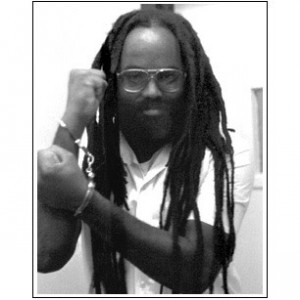
* Interesting article from Psychology today about Americans implicit associations between Black people and apes, and potential correlations between the dehumanizing of Black people and how they are treated. I hope more research is done in this area.
http://www.psychologytoday.com/blog/the-big-questions/201101/the-dehumanization-black-people
Day 18:
* Black women still find themselves lagging behind Whites and other women in health and mental health indices. For example, the depression rate among African American women is estimated to be almost 50% higher than that of Caucasian women.
“Black people account for approximately 25% of the mental health needs in this country though they only make up 11- 12% of the national population. To make matters worse, only 2% of the nation’s psychologists are Black.
The rates of mental health problems are higher than average for Black women because of psychological factors that result directly from their experience as Black Americans. These experiences include racism, cultural alienation, and violence and sexual exploitation.”
http://blackwomenshealth.com/blog/black-women-and-mental-health/
* “George Jackson was my hero. He set a standard for prisoners, for political prisoners, for people. He showed the love, the strength, the revolutionary fervor, that’s characteristic of any soldier for the people. He inspired prisoners whom I later encountered, to put his ideas into practice, and so his spirit became a living thing”. – Dr. Huey P. Newton, PhD
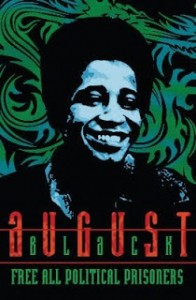
* This is a heartbreaking thing here…. the understanding that the perception of black boys being older than their chronological age has correlations with treatment from police and others. This robs them of their innocence in the eyes of others, contributing to assumptions of guilt based on being black. Very tragic information, and yet very important to understand within society.
http://www.apa.org/news/press/releases/2014/03/black-boys-older.aspx
* Peggy McIntosh, the researcher that coined the “invisible knapsack of white privilege”. McIntosh is a staple in the study of white privilege and social systems of privilege. If anyone wants to explore what this means and how privilege intersects within society, you have to know who McIntosh is and what work she has done to start and help propel this field of study.
Here is a fantastic Tedx that I found of Peggy talking about just that and some. She explores all types of privilege systems and strengthening compassion by studying this. It is not as easy to find ways to hear her talk, so this was a great find!!! Enjoy.
https://www.youtube.com/watch?v=e-BY9UEewHw
* “..and I drank in the idea that knowledge is white, and white people are knowers. And to this day in my major project, the seed project, whose core staff is 9 people of color and 5 whites, I will (unless I check myself) second guess and doubt and judge everything said.. every sentence, every word said by my colleagues of color. I will do it because my hard drive is wired with white privilege, that I am a knower among my 9 colleagues of color; the level of knowledge, and understanding and intelligence isn’t as high as it is in me.
But luckily I have alternative software I can install. And when I install the alternative software, I realize that these people have been my major teachers, and I have so much to learn from them. They’re not defective variants of whites, they are my major teachers.” – Peggy McIntosh
Day 19:
* A fantastic reflection for father’s day, and the culture of Black people… another “Black People Don’t” video to explore. Black people don’t…. go to therapy. This stereotype.. yet cultural (and somewhat statistically accurate) ideal is explored in this episode. I think there are a lot of things that are accurate in this episode and I would love to see, or do, some research around the way that emotional responses, masculinity, forced acceptance of inequity and pain, grieving, and desensitization of experiences play a role in the post-slavery conditioning of Black men in this country. Years… hundreds of years of conditioning to not feel, and then we question the need for therapy, and the way that role that is played in things like…. parenting.
Very interesting to explore and consider.
http://vimeo.com/35514989
* Cornel West is one of the most intelligent, and incredible human beings to ever begin to educate this country.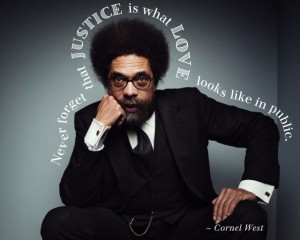
* “Until the killing of Black men, Black mother’s sons… is as important as the killing of White men… white mother’s sons….We who believe in freedom cannot rest….”
https://www.youtube.com/watch?v=S2T216XgiO0
* We have explored some things in this year’s 30 Day Real Black History Challenge around the separation from our culture as Africans, and then born into a culture within the States that holds a hold different cultural significance for Black people. We are not Africans and yet we have not historically been treated as Americans…
On of the articles I posted earlier in the challenge refers to us as homeless in the States…. The cultural divide between us in our American culture is enough to separate us in our own homeland here, and the cultural divide between us and Africans is enough where we do not belong there either.
The group Sweet Honey in the Rock does fabulous at bringing in the emotional element of our cultural pain, through song, so that it can be heard… always using the right words and the right elements. This song “motherless child” can refer to many things… and yet it is clearly talking about out loss of the motherland… Africa. Displaced in our now home, we know nothing else, and we do not belong in Africa anymore. We are born of a land that does not love us as a motherland should, and yet we are orphaned within this society.
“Sometimes I feel like a motherless child…. I can hear her calling me…. but I am a long way, a long long way from home.”
https://www.youtube.com/watch?v=R1uTIVTwpVI
* This Tedx talk is INCREDIBLE… there are some things he says that are profound in the discussion about discussions of race.
“For Black folks, and people of color, racial issues are security goals, they are as primal as putting food on your table and taking care of your family. Now for a lot of White folks, racial issues are about nurturance goals. They are things you do to make the world a better place, not quite as primal as a security goal. So, we are seeing the same data, we are seeing the same universe, we are just using different yard sticks to judge it”.
https://www.youtube.com/watch?v=UojLHDG_Y4w&list=HL1402883621&index=7
* Personal Reflections of culture #9: Whenever I am immersed in my work around Black history, transgenerational trauma, and social justice work, I find that a lot of people make the assumption that I am anti-white. People also become very cautious with offending me, I find both of those things to be very interesting. I will concentrate on the first for now; I DO NOT HATE WHITE PEOPLE.
I actually married one, although he is of mixed ancestry, for all intent and purpose… he is White. My children are all mixed, even though they are Black.
It is like that poem…. to be proud of being black often times means something else within society. It is the fear of a black/brown nation that plants these subconscious concerns that being proud means something more than just knowledge and an owning of one’s own self and legacy. It somehow translates to fear of the power that is invoked when people know their history, and take pride in who they are.
But I find that the knowing that I have been able to learn gives me a sense of self that I need to be a healer in community. When we can heal as a people, we can make changes that support all people, especially Black people…..
Oh yeah… that takes us back to square one. For some it is an unconscious fear that is encoded in the hardwire of their culture/privilege, for others.. it is a very conscious fear. In that case… I am ok with that.
Day 20:
* Great interviews and discussion of a variety of Black people talking about the colorism issue of light versus dark skinned people in Black culture. From standards of beauty to dating issues, this issue remains one of the most controversial issues that the Black community struggles with.
https://www.youtube.com/watch?v=TRcAcdRMdjY
* On day 20 of the 30 Day Real Black History Challenge, we celebrate Tupac Shakur. Today, June 16th, would have been his 43rd birthday. And so I find it fitting to take a moment to look at what Tupac was trying to say in much of his music, showing the duality of the struggle of an urban black man. Born from two Black Panther parents, father killed before he was born by the NY police department. Stepfather, Shakur, was also a panther… as was his sister Assata Shakur.
Talk about the power within a family… passed on to the power behind the lyrics of Tupac’s music. He was part “gangsta”… and yet was a revolutionary by birth and in heart. We never got to see how he grew into the role he was given when he came here, he was taken too soon. But the intensity in his voice, the presence he held, and the ability to entertain the masses made him an incredible power… still such a huge influence on us today.
Happy birthday Tupac! What is remembered lives…..
“Changes”
[1]
Come on come on
I see no changes. Wake up in the morning and I ask myself,
“Is life worth living? Should I blast myself?”
I’m tired of bein’ poor and even worse I’m black.
My stomach hurts, so I’m lookin’ for a purse to snatch.
Cops give a damn about a negro? Pull the trigger, kill a nigga, he’s a hero.
Give the crack to the kids who the hell cares? One less hungry mouth on the welfare.
First ship ’em dope and let ’em deal to brothers.
Give ’em guns, step back, and watch ’em kill each other.
“It’s time to fight back”, that’s what Huey said.
2 shots in the dark now Huey’s dead.
I got love for my brother, but we can never go nowhere
unless we share with each other. We gotta start makin’ changes.
Learn to see me as a brother ‘stead of 2 distant strangers.
And that’s how it’s supposed to be.
How can the Devil take a brother if he’s close to me?
I’d love to go back to when we played as kids
but things changed, and that’s the way it is
[Bridge w/ changing ad libs]
Come on come on
That’s just the way it is
Things’ll never be the same
That’s just the way it is
aww yeah
[Repeat]
I see no changes. All I see is racist faces.
Misplaced hate makes disgrace to races we under.
I wonder what it takes to make this one better place…
let’s erase the wasted.
Take the evil out the people, they’ll be acting right.
‘Cause both black and white are smokin’ crack tonight.
And only time we chill is when we kill each other.
It takes skill to be real, time to heal each other.
And although it seems heaven sent,
we ain’t ready to see a black President, uhh.
It ain’t a secret don’t conceal the fact…
the penitentiary’s packed, and it’s filled with blacks.
But some things will never change.
Try to show another way, but they stayin’ in the dope game.
Now tell me what’s a mother to do?
Bein’ real don’t appeal to the brother in you.
You gotta operate the easy way.
“I made a G today” But you made it in a sleazy way.
Sellin’ crack to the kids. “I gotta get paid,”
Well hey, well that’s the way it is.
[Bridge]
[Talking:]
We gotta make a change…
It’s time for us as a people to start makin’ some changes.
Let’s change the way we eat, let’s change the way we live
and let’s change the way we treat each other.
You see the old way wasn’t working so it’s on us to do
what we gotta do, to survive.
And still I see no changes. Can’t a brother get a little peace?
There’s war on the streets and the war in the Middle East.
Instead of war on poverty,
they got a war on drugs so the police can bother me.
And I ain’t never did a crime I ain’t have to do.
But now I’m back with the facts givin’ ’em back to you.
Don’t let ’em jack you up, back you up, crack you up and pimp smack you up.
You gotta learn to hold ya own.
They get jealous when they see ya with ya mobile phone.
But tell the cops they can’t touch this.
I don’t trust this, when they try to rush I bust this.
That’s the sound of my tool. You say it ain’t cool, but mama didn’t raise no fool.
And as long as I stay black, I gotta stay strapped and I never get to lay back.
‘Cause I always got to worry ’bout the payback.
Some buck that I roughed up way back… comin’ back after all these years.
Rat-a-tat-tat-tat-tat. That’s the way it is. uhh
[Bridge ’til fade:]
Some things will never change
https://www.youtube.com/watch?v=nay31hvEvrY
* “So Many Tears”
I shall not fear no man but God
Though I walk through the valley of death
I shed so many tears (if I should die before I wake)
Please God walk with me (grab a nigga and take me to Heaven)
Back in elementary, I thrived on misery
Left me alone I grew up amongst a dyin breed
Inside my mind couldn’t find a place to rest
until I got that Thug Life tatted on my chest
Tell me can you feel me? I’m not livin in the past, you wanna last
Be tha first to blast, remember Kato
No longer with us he’s deceased
Call on the sirens, seen him murdered in the streets
Now rest in peace
Is there heaven for a G? Remember me
So many homies in the cemetery, shed so many tears
Ahh, I suffered through the years, and shed so many tears..
Lord, I lost so many peers, and shed so many tears
Now that I’m strugglin in this business, by any means
Label me greedy gettin green, but seldom seen
And fuck the world cause I’m cursed, I’m havin visions
of leavin here in a hearse, God can you feel me?
Take me away from all the pressure, and all the pain
Show me some happiness again, I’m goin blind
I spend my time in this cell, ain’t livin well
I know my destiny is Hell, where did I fail?
My life is in denial, and when I die,
baptized in eternal fire I’ll shed so many tears
Lord, I suffered through the years, and shed so many tears..
Lord, I lost so many peers, and shed so many tears
Now I’m lost and I’m weary, so many tears
I’m suicidal, so don’t stand near me
My every move is a calculated step, to bring me closer
to embrace an early death, now there’s nothin left
There was no mercy on the streets, I couldn’t rest
I’m barely standin, bout to go to pieces, screamin peace
And though my soul was deleted, I couldn’t see it
I had my mind full of demons tryin to break free
They planted seeds and they hatched, sparkin the flame
inside my brain like a match, such a dirty game
No memories, just a misery
Paintin a picture of my enemies killin me, in my sleep
Will I survive til the mo’nin, to see the sun
Please Lord forgive me for my sins, cause here I come…
Lord, I suffered through the years (God) and shed so many tears..
God, I lost so many peers, and shed so many tears
Lord knows I.. tried, been a witness to homicide
Seen drivebys takin lives, little kids die
Wonder why as I walk by
Broken-hearted as I glance at the chalk line, gettin high
This ain’t the life for me, I wanna change
But ain’t no future right for me, I’m stuck in the game
I’m trapped inside a maze
See this Tanqueray influenced me to gettin crazy
Disillusioned lately, I’ve been really wantin babies
so I could see a part of me that wasn’t always shady
Don’t trust my lady, cause she’s a product of this poison
I’m hearin noises, think she fuckin all my boys, can’t take no more
I’m fallin to the floor; beggin for the Lord to let me in
to Heaven’s door — shed so many tears
(Dear God, please let me in)
Lord, I’ve lost so many years, and shed so many tears..
I lost so many peers, and shed so many tears
Lord, I suffered through the years, and shed so many tears..
God, I lost so many peers, and shed so many tears
https://www.youtube.com/watch?v=Tbs7wWLXLpw
* This article explores black culture from the place of asking some hard questions about what Black is. Is it culture? Heritage? Skin color? Physical features? Societal definitions? All questions that are complex and almost impossible to answer because of the history of subjectivity around race in America.
Great piece.
http://inamerica.blogs.cnn.com/2012/12/09/black-in-america-its-not-just-about-the-color-of-your-skin/
* My Kid is pretty damn incredible…. and kind of swedish.
http://www.patheos.com/blogs/daughtersofeve/2014/06/my-kid-is-kind-of-swedish-30dayrbhc/
Day 21:
* ”I walk alone
I’m a soldier for life
The Battle I’m fighting has no ending
It will always begin and start at anytime
I’m always standing for something
I’m constantly focusing so I don’t fall out of anything
I’m a silver fox by day and a Guerrilla by night
I’m a soldier who has forgotten how to smile, doesn’t remember laughter.
There are still dreams and debts does to the soldiers before me
I must be the soldier, the silent soldier
In order to smooth the path for those who will follow behind me
I live at the bottom of one of natures coldest seas
I come up every now and then and spit fire
To struggle is to go the distance, to win is not to care how far one must go”
-George Jackson
* “I have begun more and more to conclude that colorism is the most unacknowledged and unaddressed mental-health crisis in communities of color around the world. We speak of the color complex as a problem, as an issue, but it’s negative emotional impact on people of all hues is so serious that it needs to be called what it is — a disease. Google “color complex” and you will see impressive evidence of the vigorous Internet debates and discussions on this topic, such as the July essayfrom Vibe Vixen about a light-skinned girl whose blackness is questioned and an Allvoices.com essay from 2010 about the color complex crippling African Americans.
The ACLU and the EEOC have recognized hiring, firing or promotion based on the shade of one’s skin as a form of discrimination that is eligible for legal redress or compensation.”
* Personal Reflections of Culture #10: I AM NOT A VICTIM. Just because I am Black and I explore and express the impact that our history has had on our present, does not mean I think I am some victim. Truth be told, we are all victims of a society that has abused us in many ways, I do not think I am any different than most. BUT I do understand that my experiences here, and those of other minority cultures, is different than others.
It would be one thing if it was just about me and my experience, but it isn’t. The experiences of a large majority of Black people fall into the same categories, no matter where we live, or who we are. Does that mean I feel like I am a victim because I am Black? Are you kidding me?
I am alive, that is what I am. I am awake to the injustices that happen all around me, and I can see the cultural uniqueness that comes in many different forms in this place.
I actually feel blessed to have been born with such a rich history, with such resilience within my ancestry, with the ability to see the beauty of our struggle and use that to become more than I was before. I am honored to wear the skin of my people, I am PROUD to be Black.
So next time someone is talking about racial politics, people of color experiences…. that “real talk” kind of shit that comes from the voice of the marginalized, don’t assume they feel sorry for themselves, or are making excuses……. they might just be stronger than others realize. And most likely they are.
* Incredible point to this piece that I am in total agreement with.
“The idea that racism lives in the heart of particularly evil individuals, as opposed to the heart of a democratic society, is reinforcing to anyone who might, from time to time, find their tongue sprinting ahead of their discretion. We can forgive Whitaker’s assailant. Much harder to forgive is all that makes Whitaker stand out in the first place. New York is a city, like most in America, that bears the scars of redlining, blockbusting and urban renewal. The ghost of those policies haunts us in a wealth gap between blacks and whites that has actually gotten worse over the past 20 years.
But much worse, it haunts black people with a kind of invisible violence that is given tell only when the victim happens to be an Oscar winner. The promise of America is that those who play by the rules, who observe the norms of the “middle class,” will be treated as such. But this injunction is only half-enforced when it comes to black people, in large part because we were never meant to be part of the American story. Forest Whitaker fits that bill, and he was addressed as such.
I am trying to imagine a white president forced to show his papers at a national news conference, and coming up blank. I am trying to a imagine a prominent white Harvard professor arrested for breaking into his own home, and coming up with nothing. I am trying to see Sean Penn or Nicolas Cage being frisked at an upscale deli, and I find myself laughing in the dark. It is worth considering the messaging here. It says to black kids: “Don’t leave home. They don’t want you around.” It is messaging propagated by moral people.
The other day I walked past this particular deli. I believe its owners to be good people. I felt ashamed at withholding business for something far beyond the merchant’s reach. I mentioned this to my wife. My wife is not like me. When she was 6, a little white boy called her cousin a nigger, and it has been war ever since. “What if they did that to your son?” she asked.
And right then I knew that I was tired of good people, that I had had all the good people I could take.”
http://www.nytimes.com/2013/03/07/opinion/coates-the-good-racist-people.html?_r=5&
* This literature review conceptualizes many of the identity theories that have come out about the development and psychology of Black identity. Very interesting to see the theories that complement each other and some that contrast. We need more and more studies to build bridges between the lack of cultural inclusivity in psychology and a well-rounded understanding of the psyche of people of color.
http://www.sosyalarastirmalar.com/cilt4/sayi17pdf/4felsefevd/mtose_xolisva_and_bayaga.pdf
* This excerpt from the documentary Legalize Democracy talks about the development of racism from a legal and social policy perspective. This is very important in the development of culture and how that directly relates to privilege.
Ongoing conversations about concepts of privilege continue to reinforce my understanding that a large majority of people do not understand what privilege is, and how the lack of privilege has hurt Black and Native ethnicities more than any other in this country. The legal enforcement of racism on Black people has always created deeper disruptions in our healing as a people.
https://www.youtube.com/watch?v=YFjKQVZLk1g
Day 22:
* This makes me very sad. We don’t have much left of those times to hold onto but respecting them and honoring them in death. Our ancestors deserve peace, they sure didn’t get it here.
http://news92fm.com/447524/black-cemetery-bulldozed/
* Personal Reflections of culture #11: Why is it such a problem when a black person talks about their culture? It is like the gates open and people start to devalue that experience, or attempt to generalize it…. or normalize it. How come it is so challenging for non-people of color to listen to the experiences of Black people? It is a question I often ponder.
It is like, by sharing our experiences, science, knowledge, data with others, we are suddenly responsible for making people reflect on themselves and that brings up unwanted or undesired feelings about who they are in the world. It is like sharing culture from a Black person must mean that it is going to overshadow others in the room, make other’s cultures unimportant or maybe it will point out the differences in our histories and that is a “bad” thing.
I don’t get it. I listen to white people all the time. Their history is in the textbooks, their shows have historically been on the TVs, they have often been my boss, teacher, or the police officer when I call. I don’t walk around thinking of people as white or Black in my daily walk, until their behavior becomes clearly influenced by the white supremacist foundation of racism in this country, and then I remember… oh yeah…… It is when my opinion is not valued, I am suddenly not human, I am not deserving of respect, I am treated as if I am dumb or worthless, I become secondary to the conversation….. that my marginalized experience becomes apparent in the moment.
Maybe our conversations about race need to start from square one… respect.
* Ironic that I came home from an incredible night of listening to Elaine Brown, Angela Davis and Howard Moore Jr. speak….. I came home to finish my piece for the Wild Hunt on Pagans and Prison. What an important time to see…. how far we have come in 50 years since the Civil Rights Act, and how we are still standing in the same place.
* Tonight at the 50 year anniversary of the Civil Rights Act celebration, we got to see a long excerpt from this upcoming documentary on PBS. A representative from the production company talked about the correlations of making this movie as a reflection of history and while doing it, the Voting Rights Act was dismantled, and she said it became clear that they were documenting this as a part of the ongoing struggle. So profound.
This will air on PBS this coming Tuesday, June 24th at 9pm (same time everywhere she said). I plan to watch this…… Freedom summer is not something that is talked about a lot and had historic implications on the laws that came immediately thereafter.
http://video.pbs.org/video/2365156751/

